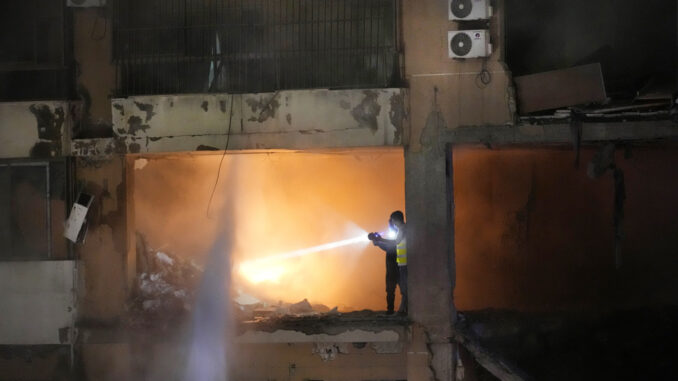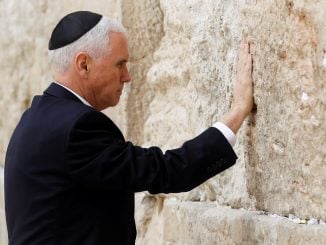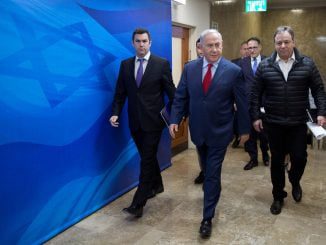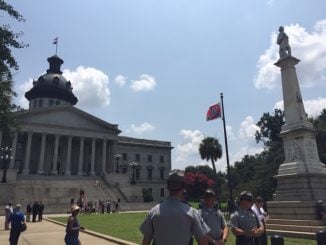
BEIRUT — An apparent Israeli strike in the Lebanese capital of Beirut killed Hamas’ No. 2 political leader Tuesday, marking a potentially significant escalation of Israel’s war against the militant group and heightening the risk of a wider Middle East conflict.
Saleh Arouri, who was the most senior Hamas figure killed since the war with Israel began, was also a founder of the group’s military wing. His death could provoke major retaliation by Lebanon’s powerful Hezbollah militia.
The strike hit an apartment in a building in a Shiite district of Beirut that is a Hezbollah stronghold, and Hezbollah leader Sayyed Hassan Nasrallah has vowed to strike back against any Israeli targeting of Palestinian officials in Lebanon.
Hezbollah and the Israeli military have been exchanging fire almost daily over the Israeli-Lebanese border since Israel’s military campaign in Gaza began nearly three months ago. But so far the Lebanese group has appeared reluctant to dramatically escalate the fighting. A significant response now could send the conflict spiraling into all-out war on Israel’s northern border.
Lebanon’s state-run National News Agency said the strike was carried out by an Israeli drone, and Israeli officials declined to comment. Speaking to reporters, Israeli military spokesman Rear Adm. Daniel Hagari did not directly mention Arouri’s death but said, “We are focused and remain focused on fighting against Hamas.”
“We are on high readiness for any scenario,” he added.
The killing comes ahead of a visit to the region by U.S. Secretary of State Antony Blinken, even as the United States has tried to prevent a spread of the conflict, repeatedly warning Hezbollah — and its regional supporter, Iran — not to escalate the violence.
Israeli Prime Minister Benjamin Netanyahu has vowed to press ahead with the assault in Gaza until Hamas is crushed and the more than 100 hostages still held by the militant group in Gaza are freed, which he has said could take several more months. At the same time, Israeli officials have increasingly warned in recent days of stepped-up action against Hezbollah unless its cross-border fire stops.
BEIRUT STRIKE
Netanyahu and other Israeli officials have repeatedly threatened to kill Hamas leaders wherever they are. The group’s Oct. 7 attack from Gaza into southern Israel killed around 1,200 people, and some 240 others were taken hostage.
Israel claims to have killed a number of mid-level Hamas leaders in Gaza, but this would be the first time it has reached into another country to target top leaders, many of whom live in exile around the region.
Arouri was the deputy of Hamas’ supreme political leader, Ismail Haniyeh, and headed the group’s presence in the West Bank. He was also a key liaison with Hezbollah.
Tuesday’s blast shook a residential building in the Beirut suburb of Musharafieh, killing four people, according to the Lebanese news agency. Hamas confirmed that Arouri was killed along with six other members of the group, including two military commanders.
Hamas’ leader, Haniyeh Ismail, said the movement was “more powerful and determined” following the attack. “They left behind them strong men who will carry the banner after them,” he said of those killed.
Hezbollah called the strike “a serious attack on Lebanon, its people, its security, sovereignty and resistance.”
“We affirm that this crime will never pass without response and punishment,” it said.
Since the Gaza conflict began, Lebanese have feared their country could be pulled into a full-fledged war. Hezbollah and Israel fought a monthlong war in 2006, when Israeli bombardment wreaked heavy destruction in southern Lebanon.
GAZA COMBAT CONTINUES
Israel’s air, ground and sea assault in Gaza has killed more than 21,900 people in Gaza, two-thirds of them women and children, according to the Health Ministry in the Hamas-ruled territory. The count does not differentiate between civilians and combatants.
The campaign has driven some 85% of Gaza’s population from their homes, forcing hundreds of thousands of people into overcrowded shelters or teeming tent camps in Israeli-designated safe areas that the military has nevertheless bombed. Israel’s siege of the territory has left a quarter of Gaza residents facing starvation, according to the United Nations.
Israel announced Monday that it would withdraw five brigades, or several thousand troops, from Gaza in the coming weeks. Still, Defense Minister Yoav Gallant said it would be a mistake to think that Israel is planning on halting the war.
“The feeling that we will stop soon is incorrect,” he said Tuesday. “Without a clear victory, we will not be able to live in the Middle East.”
Israel has said it’s close to achieving operational control over most of northern Gaza, where ground troops have been battling militants for over two months. But Gallant said several thousand Hamas fighters are believed to still be in the north, and residents reported clashes in several parts of Gaza City, as well as in the nearby urban Jabaliya refugee camp.
Fierce fighting has continued in other areas of the Palestinian territory, especially the south, where many of Hamas’ forces remain intact and where most of Gaza’s population has fled.
Palestinians reported heavy airstrikes and artillery shelling in the southern city of Khan Younis and farming areas to the east. The Palestinian Red Crescent said Israel bombed its headquarters in the city, killing five people. At least 14,000 displaced people are sheltering in the building, it said.
Fighting was also underway in and around the built-up Bureij refugee camp in central Gaza. The army issued evacuation orders to people living in parts of nearby Nuseirat camp. A strike Tuesday leveled a building in Nuseirat, killing at least eight people, according to officials at the nearby hospital. Associated Press footage showed people pulling several children out of the wreckage.
GENOCIDE CASE
In other developments, officials said Israel will defend itself before the United Nation’s top court against charges that it has engaged in genocide of Palestinians in Gaza. The announcement set the stage for what is likely to be a landmark case in international law.
South Africa launched the case Friday at the International Court of Justice at The Hague, Netherlands, saying the Israeli military campaign targeting Hamas has resulted in enough death, destruction and humanitarian crisis in Gaza to meet the threshold of genocide under international law. South Africa asked the court to order Israel to halt its attacks in Gaza.
Israel rarely cooperates in international court cases against it, dismissing the United Nations and international tribunals as unfair and biased. Its decision to respond to the charge signals that the government is concerned about potential damage to its reputation.
The genocide charge strikes at the heart of Israel’s national identity. The country sees itself as a bulwark of security for Jews after the Holocaust killed 6 million Jews, and world support for Israel’s creation in Palestine in 1948 was deeply rooted in outrage over Nazi atrocities.
The convention against genocide was drawn up by world powers the same year in hopes of preventing similar atrocities.
Eylon Levy, an official in the Israeli prime minister’s office, accused South Africa of “giving political and legal cover” to Hamas after its Oct. 7 attack triggered Israel’s campaign.
“The state of Israel will appear before the International Court of Justice at the Hague to dispel South Africa’s absurd blood libel,” he said.
Many South Africans, including President Cyril Ramaphosa, have compared Israel’s policies regarding Palestinians in Gaza and the West Bank with South Africa’s past apartheid regime of racial segregation. Israel rejects such comparisons.



